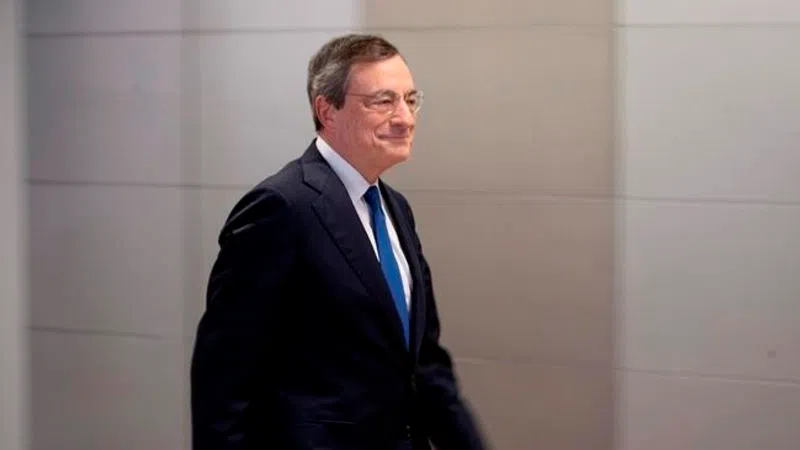
Outgoing ECB chief defends legacy against stimulus skeptics
FRANKFURT — Mario Draghi ended his eight-year term as head of the European Central Bank by defending his most recent stimulus package and reminding that the eurozone is now in better shape than during the days when the Greek crisis threatened to break it apart.
Draghi resisted extensive reminiscence about his term at his last news conference. He downplayed the recent and unusually public criticism from a minority of the 25-member governing council members after the bank decided Sept. 12 to re-start bond purchases with newly printed money.
The stimulus is meant to revitalize the economy but critics worry it should be saved for more serious downturns and can distort financial markets, increasing risks down the line.
Draghi said that criticism of the stimulus was “part and parcel of the ongoing debate.”


